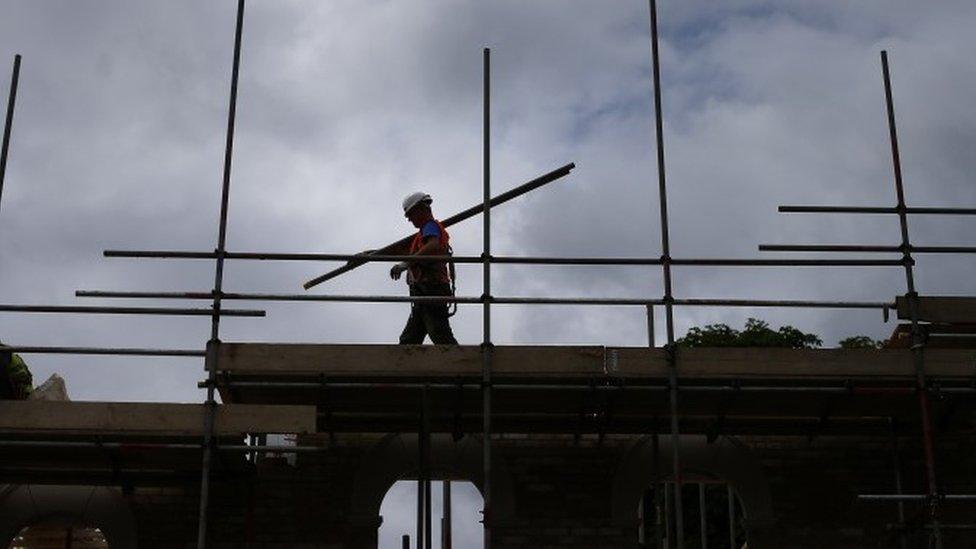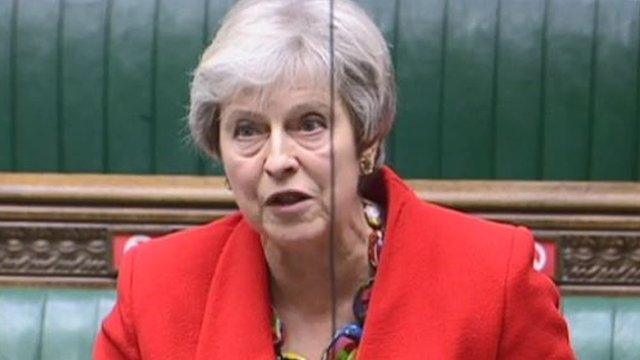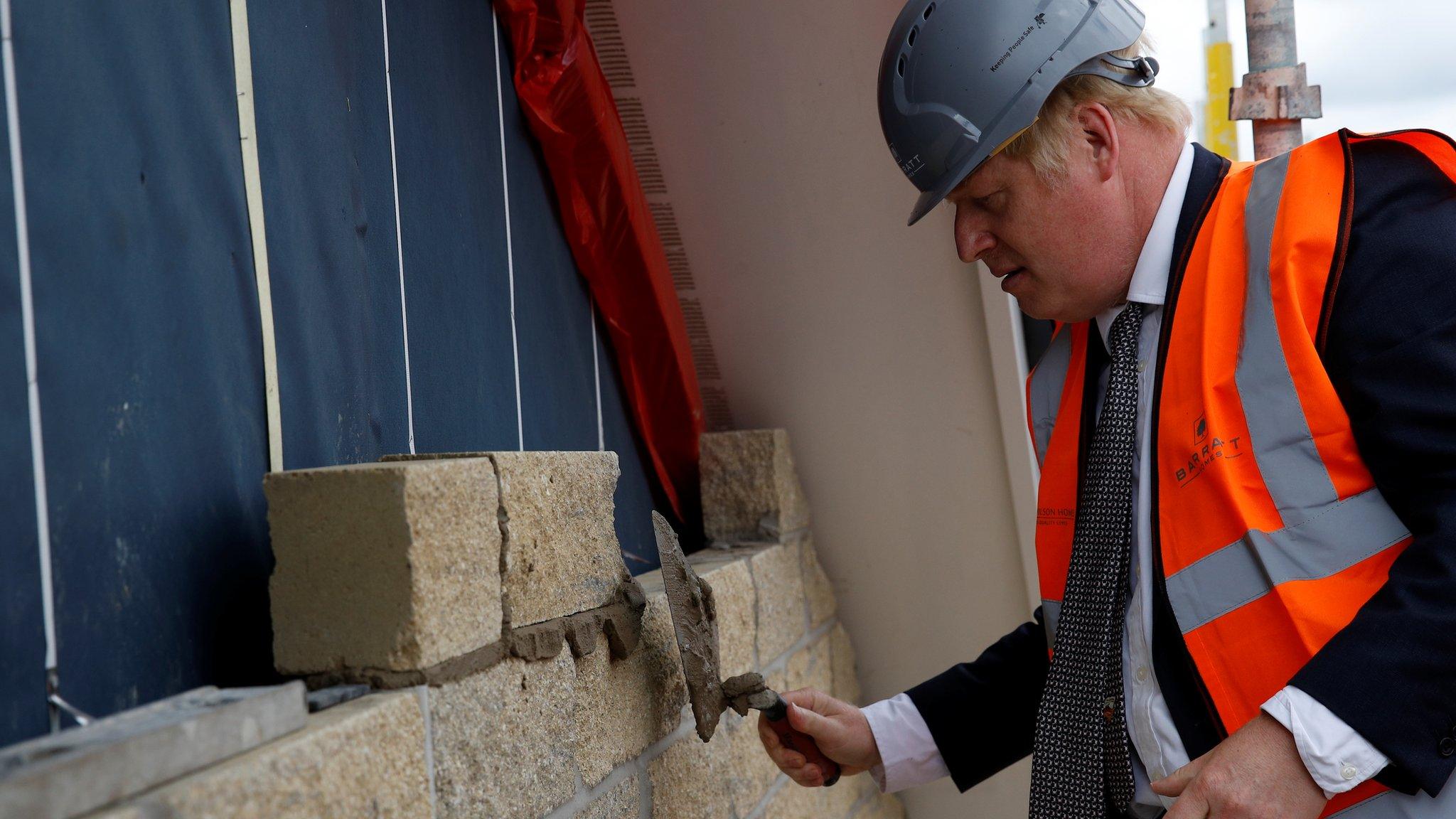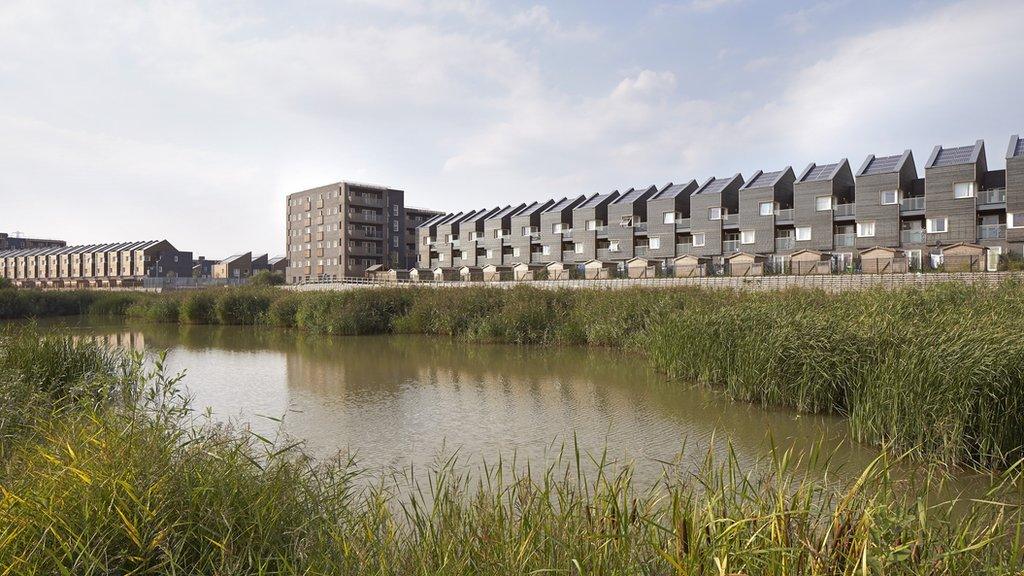Housing: Formula for locating new homes revised after Tory backlash
- Published
- comments

Proposals for controversial planning reforms in England have been revised, after new housing targets prompted a backlash amongst many Conservative MPs.
A computer-based formula used to decide where houses should be located has been "updated" to focus more on cities and urban areas in the North and Midlands.
Ministers said cash for brownfield sites would be distributed more fairly outside London and the South East.
Some MPs in southern England said their areas risked being "concreted over".
The government wants to 300,000 new homes to be built across England each year by the mid-2020s.
In August, it proposed a new formula designed to provide a rough estimate to councils on how many properties needed to be built in their communities.
Local authorities would have been expected to come forward with potential sites - taking into account constraints, such as areas protected by the green belt.
But several senior Conservative MPs expressed concerns about relying on what one of them called a "mutant algorithm" to decide housing needs.


Has the pandemic changed the housing supply equation for England?
Working from home and shopping online have hollowed out many urban centres, with offices and shops empty and unused. Could our struggling High Streets and business zones be repurposed as residential neighbourhoods?
Today's planning announcement suggests just that, shifting the housebuilding emphasis to brownfield urban sites in the West Midlands and northern England, away from rural and semi-rural communities in the South East.
While that may please some of the government's critics on its own backbenches, the question is whether the change makes it harder for ministers to keep their promise to build enough affordable and beautiful homes where people want to live.
There is a limited supply of brownfield sites and often they are difficult and expensive to develop - odd-shaped bits of land alongside a railway line or contaminated by industry. Recent experience of turning office blocks and shops into homes has seen concerns about quality standards.
The greatest demand for housing is in the South East where affordability remains the biggest issue. Today the ONS reported that the average house price in the region rose to a new high of £337,400 - almost two and a half times the average in north-east England.

In October, former Prime Minister Theresa May called the plans "ill-conceived", while ex-Foreign Secretary Jeremy Hunt accused the government of risking "undermining" local democracy by pressing ahead.
The 300,000 target, a Conservative manifesto commitment at the last election, remains in place and new homes will still be built in the South, but the government will prioritise brownfield sites in England's 20 largest cities and other urban areas.
Housing Secretary Robert Jenrick told BBC Radio 4's Today programme said a consultation showed people "strongly supported" increased homebuilding.
But they "understandably wanted more homes to be built in urban areas", as these were the "most environmentally sustainable" sites, with good transport links, he added.
Mr Jenrick also said: "They wanted to use housing to push private sector investment into the cities of the North and Midlands...that's what we've done in this update to the methodology."
'Initial victory'
A taskforce has been set up to advise on inner-city regeneration and how to respond to the fall in demand for office and retail space during the pandemic.
The West Midlands and Greater Manchester Mayoral Combined Authorities will receive £67m in new funding between them for brownfield developments.
A new £100m fund will be launched in January, giving councils across England the chance to pitch for money to support developments on public land and regeneration of council estates.
Ministers have also pledged to think again about how up to £7bn in future funding is allocated across England so that it is not concentrated in the most prosperous areas in London and the South East.
"This is good news," said Isle of Wight Conservative MP Bob Seely, one of the most stringent critics of the algorithm. "This is an initial victory for those who care about their communities.
"I, and I am sure many others, want to work supportively with the government to make sure we build the right homes in the right places."
- Published8 October 2020

- Published6 August 2020

- Published6 August 2020
